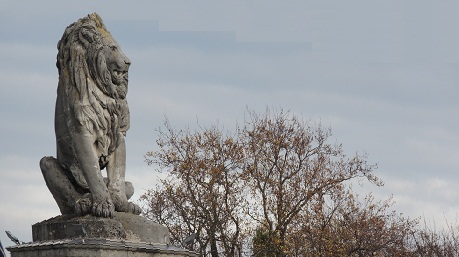
Pride
Pride or self-esteem is the appreciation or consideration that one has of oneself or a loved one, the feeling of satisfaction for one's own achievements, abilities or merits.
In the Mandala of Emotions pride belongs to the family of passions. Pride and audacity are two brothers with antagonistic paths; boldness follows achievement, pride rises after achievement. The flip side of pride is shame. In this case, the shame is caused by an overexcited pride that causes weakness.
Emotions are in balance or not. This depends on the mode, the occasion and the duration of the emotion. Pride when balanced leads to success, but when it is excessive or deficient, it leads to failure.
When pride is excessive:
For the vain, everyone else is an admirer.
Overly proud people breed sadness for themselves.
Suffering opens the shell of the ego.
If your pride is not tempered, he will be your greatest punishment.
Pride is related to the opinion we have of ourselves; vanity, with what we would like others to think of us.
The walls of pride are high and wide. You can't see the other side.
Ingratitude is the daughter of pride.
Pride never comes down from where it rises, because it always falls from where it rose.
Criticism is nothing but hidden pride.
Do not exalt yourself before others or conceive yourself as the greatest of all, or the most virtuous.
Whoever wishes to do good must avoid fame.
Our character gets us into trouble, but it's our pride that keeps us in it.
You have to leave the vanity to those who have nothing else to show off.
Insolence carries with it a punishment: foolishness.
Vano means empty: so that vanity is such a small thing.
When pride is lacking:
Through pride we deceive ourselves.
Pride is the complement of ignorance.
Pride inspires us so much envy.
Whoever does not value himself cannot value anything or anyone.
When you look to another person for approval, you're setting yourself up for disaster.
Of jealousy: we boast of having had it, and of being able to have it.
Low self-esteem cannot be overcome with heroic fantasies.
The beaten pride takes refuge in love.
The price you put on decides your value. Underestimating yourself will cost you dearly.
The estimate is achieved less when searching more.
Pride does not want to have to; and self love does not want to pay.
There are those who consider themselves perfect, but it is only because they demand less of themselves.
When pride is balanced:
Although pride is not a virtue, it is the father of many virtues.
The triumph is the satisfaction of an ideal or goal.
There is nothing more satisfying than having plans.
Stay away from those who try to put you down.
The only limit one can have to achieve the satisfaction of tomorrow is today's doubts.
Inner satisfaction, the sweetest of all passions.
The will can and should be a source of pride.
There is a feeling of satisfaction when something you imagined becomes real.
Happiness is enjoying the present to have fun and rest satisfied with what we have.
Self-satisfaction is the greatest act you can do in the world.
A certain amount of pride is a useful ingredient for genius.
Self-satisfaction is freedom. Freedom is satisfaction.
Where there is satisfaction there are no revolutions.
The invincible champion is not boastful.
The pride of the mediocre consists in always talking about themselves; the pride of the great ones in never talking about them.
Learn to value yourself, which means fighting for your happiness.
Meng Zhihan was no braggart. When en route, he stayed in the rear to cover the retreat. Only when he reached the gate of his city did he spur on his horse and say it was not courage that kept me in the rear, but the slowness of my horse.
Pride, which inspires us so much envy, often also serves to moderate it.
The sentences of this article are distributed throughout the Oracle of the Soul.
Author: Adrian Casasnovas ©